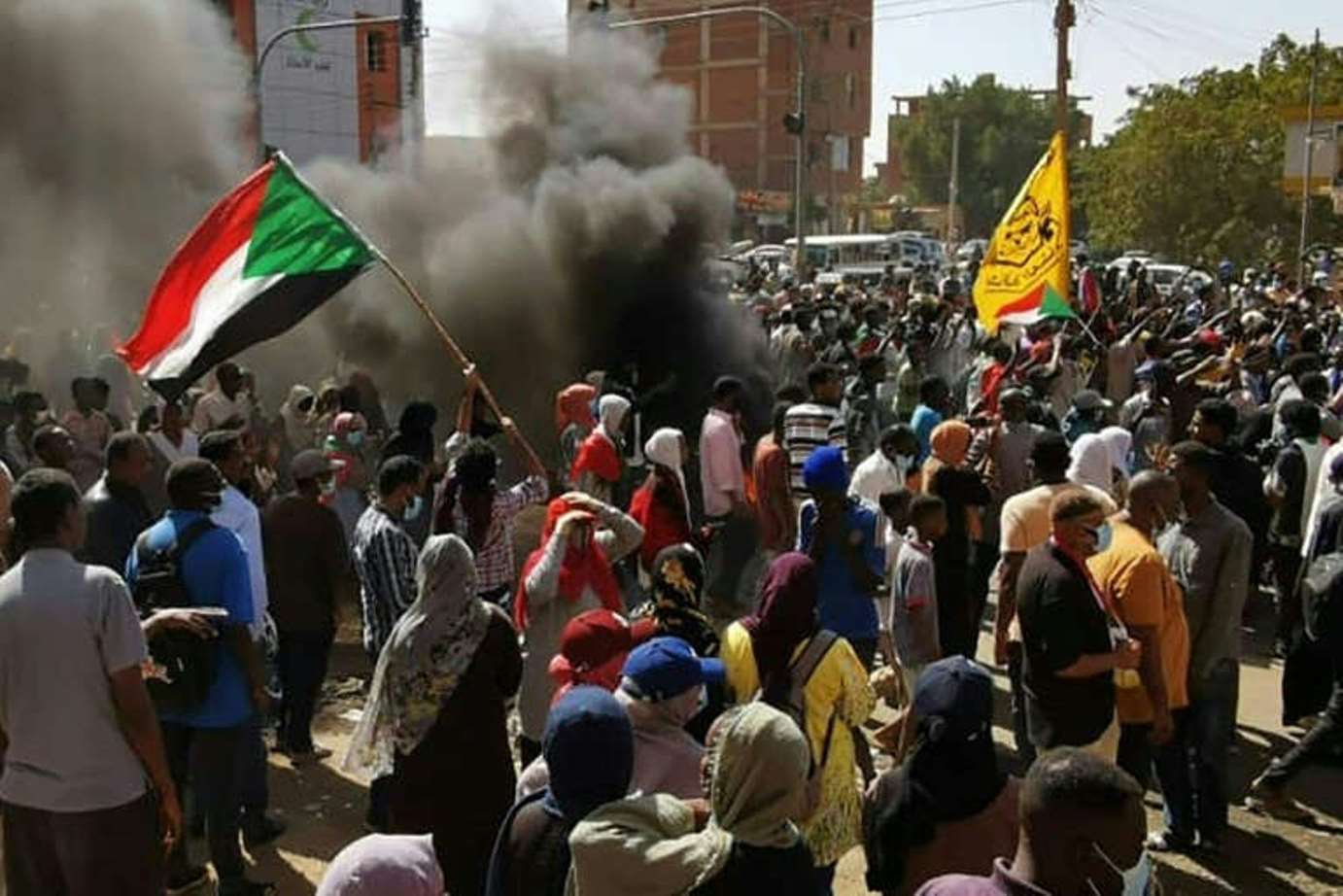Thousands of people have once again held a massive rally in Sudan’s capital, Khartoum, calling for justice for those killed during anti-junta protests since the military coup of October 25, 2021.
Demonstrators marched on the presidential palace on Sunday, braving tear gas shots and a heavy security presence. The crowds, carrying the Sudanese flags and posters of people killed during anti-coup demonstrations in recent months, demanded an end to the rule of the junta.
Security forces used tear gas and wounded several protesters in central Khartoum.
“We are ready to protest all year,” 24-year-old Thoyaba Ahmed, a demonstrator, was quoted as saying.
“We need to make sacrifices to resolve the country’s issues,” 25-year-old demonstrator Arij Salah said.
Regular protests have rocked the country since army chief Abdel Fattah al-Burhan led a military takeover in October 2021.
UN human rights expert Adama Dieng, meanwhile, is visiting Sudan until Thursday, on a trip initially planned for last month but postponed at the request of Sudanese authorities.
“Dieng will meet with senior Sudanese government officials, representatives of civil society organizations, human rights defenders, heads of UN entities, and diplomats,” the UN Office of the High Commissioner for Human Rights said in a statement this week.
UN special representative Volker Perthes said on Twitter Sunday that he met with Dieng on “his first official visit” to Sudan.
READ ALSO: David Miliband: West has inflicted catastrophic damage on Afghanistan
In recent months, Khartoum and several cities have been on the scene of protests against the coup government.
Over 80 people have been killed and more than 2,000 injured in clashes since the coup, according to a count by a pro-democracy group of medics.
In 2019, massive anti-government demonstrations hit Sudan, mostly over an economic downturn. The protesters, youths for the large part, demanded the resignation of then-President Omar al-Bashir. Bashir was ultimately deposed through a military coup in April that year. In August, a transitional civilian-military administration was founded to run the country.
But the military chief and de facto leader Burhan staged a coup in October 2021 and dissolved the fragile government.
Abdalla Hamdok, then prime minister, was detained and put under house arrest in a move that infuriated the Sudanese and sparked international outcry, including from the UN Security Council. Other civilian leaders were also held in military detention.
Hamdok was later released and signed a power-sharing deal with the Burhan-led junta, according to which the former would continue his career as prime minister, all political prisoners detained during the coup would be released, and a 2019 constitutional declaration would be the basis for a political transition.
July 2023 was set as the date for Sudan’s first free elections since 1986. On January 2, Hamdok resigned, leaving the military fully in charge. He said Sudan was at a “dangerous crossroads threatening its very survival.”
Also on Sunday, dozens rallied outside a court complex in Khartoum to protest against the trial of several Bashir-era figures.
Among those on trial is former foreign minister Ibrahim Ghandour, who faces charges over plotting a coup in 2020.
Ghandour’s family said last month that he had begun a hunger strike in prison, along with several ex-regime officials.













